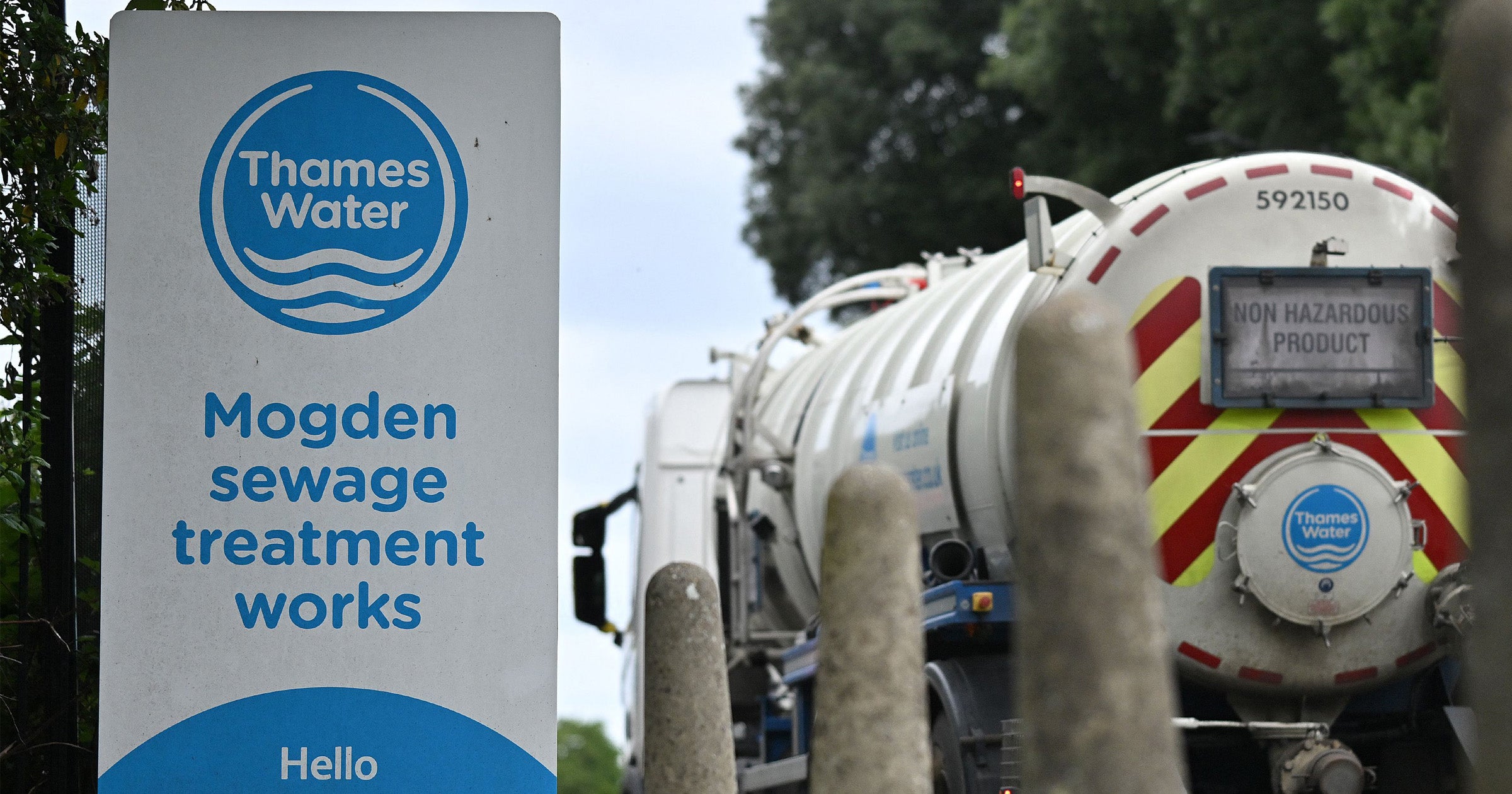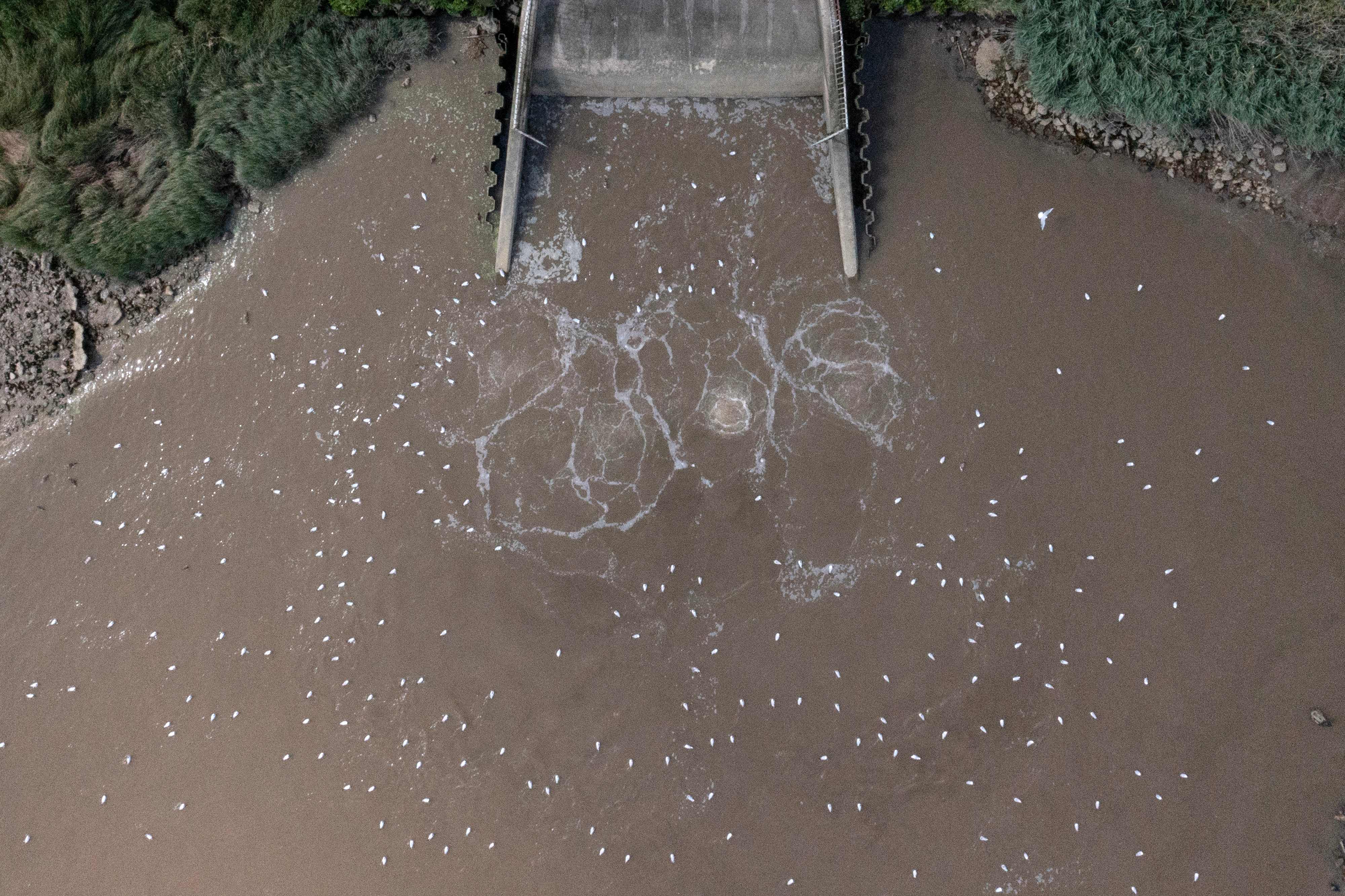Mapped: Which areas in the UK have the most sewage overspills?
Expert warns the state of Britain’s rivers ‘are going to get worse’
Water companies have “systemically underinvested” in sewage treatment as the country’s river systems are on the brink of collapse, an environment expert has warned.
It comes as Thames Water was on Tuesday fined £3.3 million for dumping sewage in rivers near Gatwick Airport in October 2017.
There was a “significant and lengthy” period of polluting the Gatwick Stream and River Mole between Crawley in West Sussex and Horley in Surrey on October 11 2017, the court heard.

Recent data from The Rivers Trust shows a total of 384,568 sewage leaks into the rivers and creeks across England and Wales, amounting to a duration of 2,348,439 hours.
What are storm overflows and overspills?
Storm overflows are designed to prevent overwhelming sewerage systems by discharging wastewater into rivers.
According to the regulator Ofwat, spills come from storm overflows in emergency situations, for example, if there are sewer blockages or equipment failures at wastewater treatment works.
Here is a map which shows the areas in the UK with the highest number of overspills:
Cornwall had the highest count of overspills in 2022 at 11,285, closely followed by Carmarthenshire which had a total of 11,195 overspills according to Utility Bidder.
- Cornwall- 11,285
- Carmarthenshire- 11,195
- County Durham- 9,940
- Gwynedd- 9,715
- Rhondda Cynon Taf- 7,875
- Northumberland- 7,382
- Pembrokeshire- 6,988
- Allerdale- 6,774
- Bradford- 5,216
- Neath Port Talbot- 5,034

Dr Tilly Collins, deputy director at the Centre for Environmental Policy at Imperial College, criticised privatised water companies for failing to “invest sufficiently” in water treatment systems as she said they are “dealing with the old problem, not the new one”.
She said: “For a long time, we have been succeeding in improving the quality of the water in our most polluted rivers but that situation has been reversed by underinvestment in infrastructure but also a change in the pollutants in our waters.
“New sewage works have not kept pace with the number of people in urban areas and the kind of pollution that is coming through the system.
“As well as bodily waste, there is an enormous amount of chemical pollution coming from households: pesticides, antidepressants, cocaine metabolites.
She added: “Biological and chemical pollution harm rivers, harm people, and harm animals that live in rivers. The nutrients in urine and stool can cause eutrophication which can collapse river systems.”

Commenting on the multi-million fine for Thames Water, the company’s sustainability director, Richard Ayland, said: “This incident happened six years ago. That was then, this is now.
“We’ve had a new chief executive who came in and has spent three years devising a turnaround plan which is setting us on the road to a much more secure future for the company and the environment.”
Thames Water announced on 1 March that a record £1.6 billion would be invested in sewage treatment works and sewers over the next two years.
It comes as the government is scrambling to put together a plan to rescue the company over increasing fears the company is set to go bust. The utility giant is struggling under a £14 billion debt pile it has accrued since it was privatised in 1989 and could now potentially be taken into public ownership if further investment is not found.
Join our commenting forum
Join thought-provoking conversations, follow other Independent readers and see their replies
Comments


Bookmark popover
Removed from bookmarks